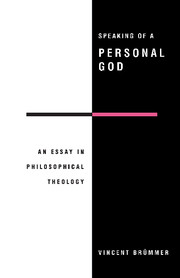6 - Can a theodicy console?
Published online by Cambridge University Press: 14 December 2009
Summary
Consolation and Moral Sensitivity
In chapter 4 we came to the conclusion that an almighty and perfectly good God will always remain faithful to his own character and can therefore be counted on never to become the author or approver of evil. This conclusion immediately confronts us with the classical problem of evil, which was also raised at the end of chapter 3: If God is not the author or approver of evil, why then do we encounter so much evil and suffering in the world? Cannot an omnipotent God prevent all evil and suffering from ever occurring in the world, if in his goodness evil and suffering are abhorrent to him? In the previous chapter we argued that God is not the author or approver of evil in the sense that evil and suffering are contrary to his intentions and therefore never brought about by him intentionally. However, this does not prevent God's consenting to forms of evil and suffering which are unintended consequences, concomitant effects and side effects of the realization of his intentions in the world. But what are these greater goods intended by God which have such evil side effects? In the Christian tradition this perennial problem has usually been answered by some or other form of theodicy argument and especially by the so-called free will defence. In section 2.5 we pointed out that the free will defence is based on our thinking of God in terms of personal models: if God intends to create us as persons who can enter into a personal relationship with him, he must accept the risk that we should abuse our freedom as persons and cause evil and suffering in the world.
- Type
- Chapter
- Information
- Speaking of a Personal GodAn Essay in Philosophical Theology, pp. 128 - 151Publisher: Cambridge University PressPrint publication year: 1992



